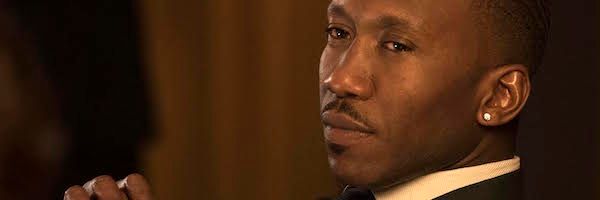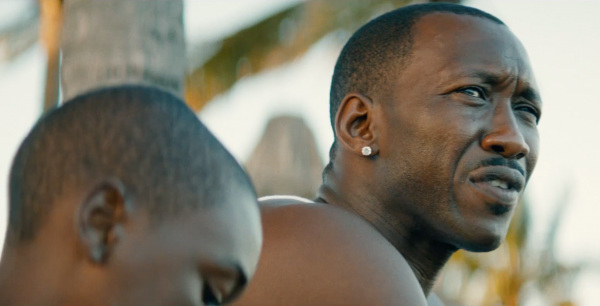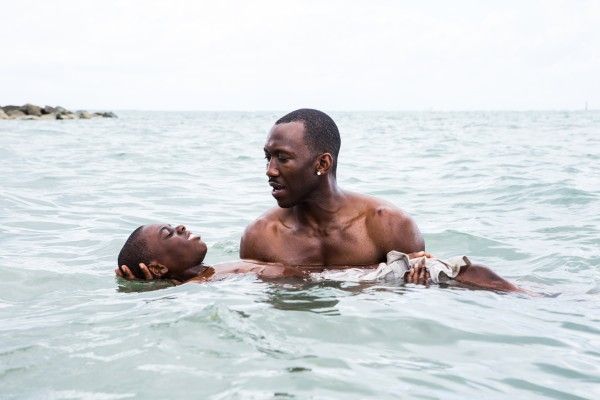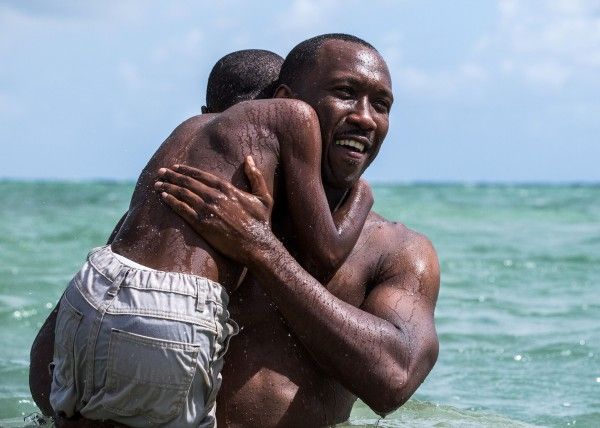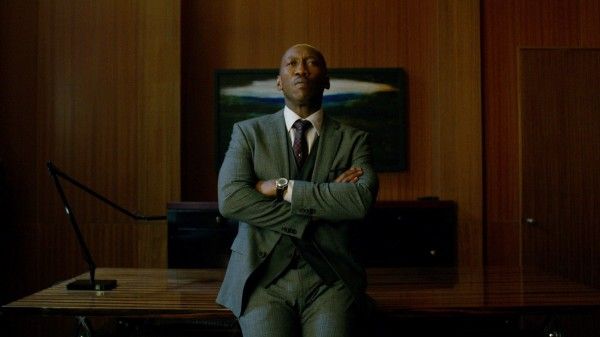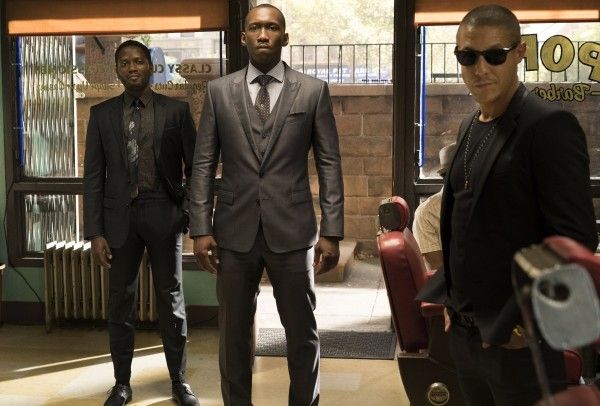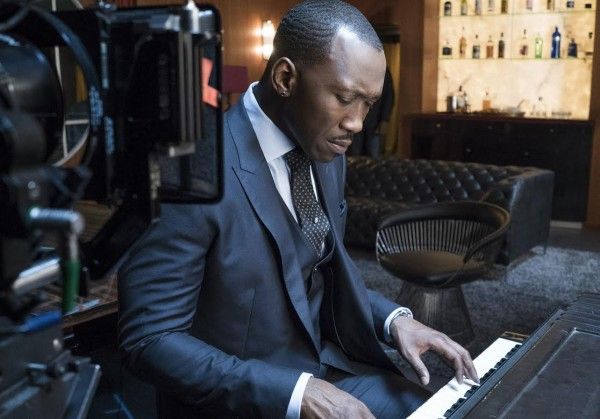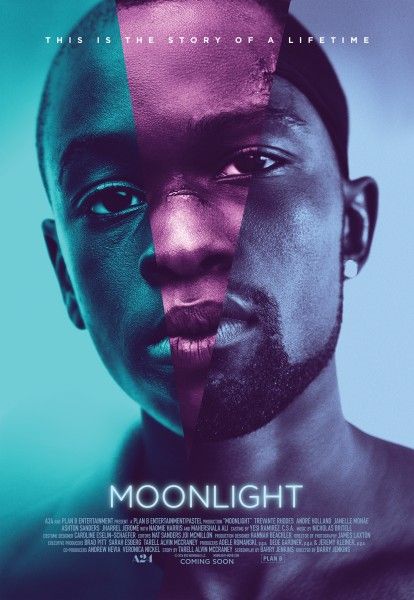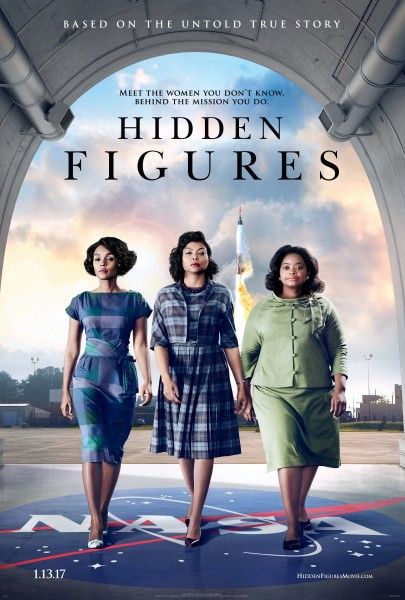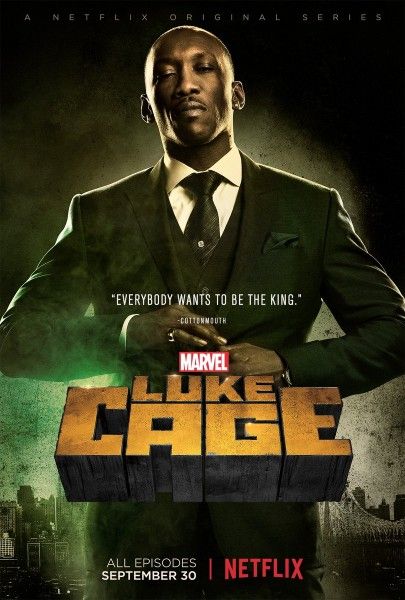With an undeniable talent, countless stand-out roles, and a wide-ranging background in film, television and theater, actor Mahershala Ali has been riding a much-deserved wave of success this year, into what’s already shaping up to be a very interesting 2017. As the drug dealer Juan, who becomes the mentor and unofficial guardian of protagonist Chiron in Moonlight, Ali has received much critical praise for his performance and has already started racking up awards. And as the chilling and vicious Harlem nightclub owner Cornell “Cottonmouth” Stokes in the Netflix series Luke Cage, he made viewers want to learn as much as possible about the hero’s nemesis.
During this exclusive phone interview with Collider, actor Mahershala Ali talked about how grateful he is for the year that he’s had, why he’s surprised it never crossed his mind that he’d be in the thick of awards season with Moonlight, the overwhelming response he’s gotten for the film, doing a project as secretive as Luke Cage, and how the character of Cottonmouth evolved. He also talked about the appeal of a project like Alita: Battle Angel, the experience of working with Robert Rodriguez, taking on villainous characters, and what made him want to be a part of Hidden Figures.
Collider: Congratulations for the big year that you’ve had! You’ve been in this business for some time now, but your career has been on quite a roll lately.
MAHERSHALA ALI: Yeah, I’ve seen a couple of people say, “Where’d he come from?” Believe me, I’ve been here! I’ve been around a long time, but I’m very grateful for everything.
Do you feel a personal sense of professional satisfaction, or do the successes make you want to work even harder for what the next thing could be?
ALI: Growing up, I played sports and I went to college on a basketball scholarship. In high school, I really had a goal to get a scholarship and play Division 1 basketball. When that happened, I remember this sense of accomplishment that I had. I had a rough and really challenging four years, thought, for a lot of reasons. I didn’t set realistic goals. I was happy to be there and I got my tuition paid for, but I didn’t figure out the next things that I needed to work on and attack, and I needed to work on my skill set to have success at the collegiate level. I think back on that time a lot. For 20 years, I’ve thought about that time when it pops up in my mind. So, when I find myself attaining goals, or being in a place that feels more fulfilling and that clearly is a difference from where I was, at some point prior to that, I’m careful to really embrace a sense of accomplishment or satisfaction, and focus back on what the work is that I need to do now. Now, I feel like I’m definitely in a new and differently place, but it’s more about how I approach the work next. Maybe I don’t do anything different. Maybe the parts are just more fulfilling and multi-dimensional, or maybe I’m working more days. I think it’s really just time to put my head back down and go to work on whatever comes my way.
When you made Moonlight, could you have ever imagined that you’d be here now, with the film receiving so much critical acclaim, awards recognition, and now Oscar talk?
ALI: I don’t mean for myself, but for the film, I’m surprised it didn’t cross my mind. When I read the script, I was really blown away by it. Everyone in the cast will tell you that they were blown away by it, and they cried several times reading it. That was my experience. But it didn’t cross my mind that we would be in the conversation for Best Film of the Year, or the way it’s been reviewed and appreciated by folks. Even before I got the script, there were several agents and people buzzing about it and saying, “This is an excellent film. You’ve gotta read it.” That is just not the case, most of the time. Most stuff comes with disclaimers like, “It needs work,” or “It’s a great part, but it’s got problems.” With this, from the jump, the film was great. If anything, it was people saying things like, “I just hope people support it because it’s a tough subject matter, but man, it’s terrific.” So, I’m just surprised that it never crossed my mind. I don’t think it ever crossed (writer/director) Barry Jenkins’ mind. He’ll tell you that he was hoping five or 10 people would see it, half of which would be his family. We’re all a little blown away by it, which I think makes it that much sweeter because we didn’t go into it with any expectations. I’ve done that before. I remember when I first read Free State of Jones, it was a really powerful script, so I was a little surprised that it didn’t quite come together to be a film that was being released in October or November, or something like that. You never know how these things are gonna come together. So many things have to fall into place, just right, for it to be considered one of the contenders or for it to be one of the Ten Best Films for awards seasons. We’re all pleasantly shocked.
Even a great script, a satisfying experience on set, or a great time working with a director doesn’t guarantee that the film will turn out how you hope it will, or that audiences will go see it and respond in the way you hope they do. The word of mouth for Moonlight has really made an impact on getting people to the theater to see it.
ALI: Right, and people have seen it two or three times. That’s a pretty common thing that I’m finding, just online or with people stopping me and saying, “Man, I loved it better the third time!” That blows me away. People have really connected to this film, in that way. One thing that the audience, and perhaps critics, aren’t aware of is that, especially in a film like Moonlight, you always shoot a lot more footage than makes the cut of the film. There’s another 15 minutes of story that I know I shot for Juan, and of other characters. As good as that feels on the day, you still don’t know what’s going to be used or how it’s going to cut together. So, for it to have come together the way that it did, it just really fit together perfectly. The first time I saw it was probably about five months ago, when it still had temp music and it wasn’t color corrected and they were still trying to get the edit right, I thought it was amazing then, but I never thought it would ride this wave into awards season.
And your character in Luke Cage, Cornell “Cottonmouth” Stokes, is very different from Juan in Moonlight. He’s one of the most complex, complicated and layered villains on TV this season, and it’s an interesting balance of cool and cold-hearted that’s so compelling to watch. How much of your performance in that came from what was on the page, how much came out of conversations you had with Cheo Hodari Coker, and how much was just what you felt?
ALI: It was probably a third of each, maybe. One of the first things I did, upon reading, I think, just the first two scripts because they’re so secretive over there. It’s even harder, if you’re in it, to get a script. I was like, “Look, I’ve gotta get on book and memorize my lines!” I think they would love it, if you could just come to work and they could upload the dialogue for that day, and then you go do it. But upon reading the first two scripts, what I did was I wrote a really detailed backstory for Cottonmouth, or Cornell, which isn’t all that common for me, but I’ve tried to start embracing it more. Normally, I just try to figure out how to do the work and approach things in a manner that just feels right for that project. So, I emailed that to Cheo, and we never really talked much about it, but I know some of those things made it into the story, later on. He did mention that a lot of what my instincts were, about the character’s background, were right on point with what they were thinking. They’re just so secretive over there that they don’t share a lot with you, and rightfully so. They’re worried about things leaking because there’s such a hunger for information from the Marvel fan, so they have to be really careful. I just wanted to walk into it with some history in mind and have ways to anchor myself to this guy to make him real. That way, whatever it was they put on the page, I was able to metabolize that information, that dialogue and those thoughts in a way that was more human than what it would have been, if I hadn’t approach him as a real person with a real history. I don’t think I’m special, in that regard. I think most actors would have to approach it in a similar way. So, it was a combination of what they wrote, what I thought of the character and his history, and just what we discovered on the day. Also, when you work with Alfre Woodard, as much as I did on that, you’re just going to be better. You can’t not be. She’s so terrific, and she was so real and human and truthful as Mariah that she was fairly easy to connect to.
When you play a villain like that, that is so memorable, do you have any hesitation or stop to think about it when the villain in Alita: Battle Angel comes your way, or is it such a different world that that doesn’t matter?
ALI: I thought about it a lot. I really did. If you look at my credits, and I probably have close to 40 credits, I’ve probably played two or three outright villains, including Alita. Clearly, this is supposed to be the bad guy. But once you string two or three of them together, people start staying, “Oh, man, you’ve done really well playing the bad guy.” And I’m like, “Remy (in House of Cards) wasn’t a bad guy, to me. He’s someone who is grey and who doesn’t always do the right thing, but does the right thing for him.” It’s funny how you can be thought of as somebody who humanizes bad guys, and I’ll take that, but it is something that gave me pause and I started speaking to my team about finding a good guy. I don’t want to tip too far into that direction. If you’re fortunate enough to be in a project that really hits, like Luke Cage and I’m sure Alita has that potential, with who’s behind it and who’s in it, then that could be the thing that people know you more from than Benjamin Button or even Hidden Figures, where my character is clearly a good guy. It’s always a struggle to find that balance. I always think everybody is different. You could play two guys from a very similar world, like playing Juan in Moonlight and Marlon in Kicks, and those two films had hit in a similar way, where people really responded to them, and Kicks was really well reviewed, but it’s a different audience and different people saw that film, but they’re clearly very different characters, even though they have some similarities, in terms of what they did or the world they come from. So, I try to look at each characters as an individual. I also always want to do something different with each one and find who the person is, and what their likes, dislikes and struggles are. But it is something, especially with the villains or the people who are framed in the story as the villain, where I’m really conscious of that, moving forward, and I feel like I have to be somewhat careful of the choices I make, as opportunities come my way.
Much like Luke Cage, which had a strong history in the comics, Alita has a history in its own source material. As someone who wasn’t familiar with that source material, what was it about that that stood out for you? Was it the world, or was it who you’d be working with?
ALI: It was the world and it was who I’d be working with. It was Robert Rodriguez’s passion about the project, and everyone around it. I’ve been doing independent stuff for a year. I did a play last year. And Hidden Figures really has an independent spirit, in the way it was approached. It’s not a big-budget movie, but it looks like it is. It’s on the humble side, in terms of these big studio films, but it does have an independent spirit about it, in how it was put together. And I did Roxanne Roxanne this summer, which will be at Sundance. It was a year of doing smaller things, coming right out of doing Luke Cage, so I wanted to explore that big studio film world and see what I could bring to a character that was interesting. I wanted to explore and find what it is that this character has to offer to the story. And I’m always trying to do a balancing act with things that are large and small. There’s just not much in between. So, I’ll finish that soon, and then start looking for the next thing that appeals to me, which could be another really tiny film or a play, or something like that. I want to have the freedom to do anything I want to do, ideally. I’m not shy about trying to find what truth there is in any genre, whether that be an action piece, a sci-fi piece, a small indie film, or a play. I’m open to it all.
How have you found the experience of working with Robert Rodriguez?
ALI: He’s a lot of fun. However old he is – and he’s obviously a grown man – inside, he’s a kid. He loves the work. He loves trying to discover new things. He’s a really good director. I worked with him before, when he produced a film that I did six or seven years ago, called Predators, with Adrien Brody and Walton Goggins. We shot in Hawaii and Texas, so he was around a little bit, and he had us over to his house. So, I’ve had an opportunity to connect with him before, but working with him and having him actually direct something that I’m in, has been a really wonderful experience. It really feels like a family because he works with basically the same team for everything that he does. They love working with Robert, and I love working with him. He’s a great guy.
What attracted you to the story of Hidden Figures and made you want to be a part of that film?
ALI: What attracted me to it was seeing three very unique, strong women carrying this narrative. It’s a story that we just are not familiar with, and I hadn’t heard of it. So, it was really the opportunity to be an ally to their story, support that, and be one of those who was assisting in spreading the word about their experience. It was a really terrific read. So, for me, it was an opportunity to be a part of the team. I wanted to be a part of the ensemble and support Taraji [Henson], who I’ve worked with before on Benjamin Button, and she’s incredible and has always been really good to me. I wanted the opportunity to work with Taraji, and Janelle Monáe again, and Octavia Spencer. They’re terrific in the movie. They really are.

